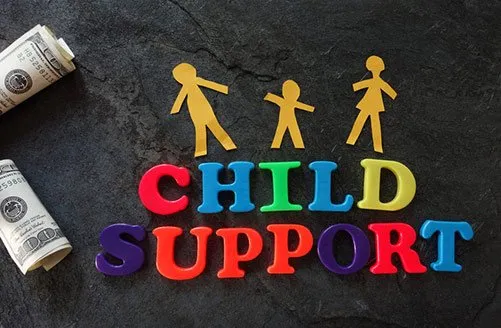Every state has child support laws and guidelines for both parents to follow in the event of a divorce. As the non-custodial parent, you pay child support every month in the amount determined by your income and the other parent’s income, as well as other factors.
Here are four things you should know about paying child support. Being knowledgeable in how the child support system works will help you manage your legal and financial responsibilities more effectively.
1. You Pay Child Support Every Month
You must pay your child support in its full amount every month, even if you and the other parent have agreed that the children will be in your care for longer periods of time outside the custody order (such as long-term vacations, summer visitation, and extended weekends).
Unless modified, child support will continue for each child you and your ex-spouse have in common until they reach the age of majority for your state. This will be either 18 or 19 years of age (depending on the state) or when a child completes high school, whichever comes first.
2. You Can Modify Child Support
Once child support payment amounts have been set, they don’t change until either you or the other parent file for a modification. A modification can occur for many different reasons, including:
- Change of employment of either party
- Change of child custody agreements
- Relinquishment of parental rights to the children
- Change of childcare needs (education, daycare, medical needs)
A child support modification should be filed with the assistance of a family law attorney. In order to have the modification approved by the courts, you must have valid reason to modify child support beyond disagreeing with the amount. Until modification has been approved, you will continue to make monthly payments at the current amount.
3. You Face Penalties for Non-payment
Failure to pay child support for any reason, even if the children are currently in your care, will result in penalties. Since child support is ordered by the court, failure to pay puts you in contempt of court. Penalties include the loss of your driver’s license, lien placed on your property or other assets, wage garnishments, tax refund garnishments, and even jail time.
If you cannot make a child support payment one month, call the state’s health and welfare department or speak to your lawyer to document the reason why. In some cases, you can make payment plans to help you catch up without facing legal penalties. If you’ve lost your job or have experienced a decrease in your wages, causing you to fall behind on child support, then you need to file a modification with the help of your lawyer.
4. You Don’t Decide What You Pay
If you and the other parent have agreed to lower child support payments or payments for other things in lieu of child support — such as medical insurance, daycare, and other child needs — you can still be held in contempt of court if payments are not made to the correct system (often an account set up by your state’s health and welfare department).
Having child support payments forgiven, even in writing by the other party, does not exclude your state obligations unless you have court approval. Even if the other parent returns child support payments to you, you still need to pay the amount owed. Court systems determine child support to be the right of the children involved, and the parents don’t get to decide if and in what amounts it gets paid.
Child support can be tricky and lead to serious legal complications if not paid correctly. Bring your child support case to our skilled family law attorneys at The Madden Law Firm Attorneys At Law. We will work with your individual case to ensure child support guidelines and laws are fulfilled.





